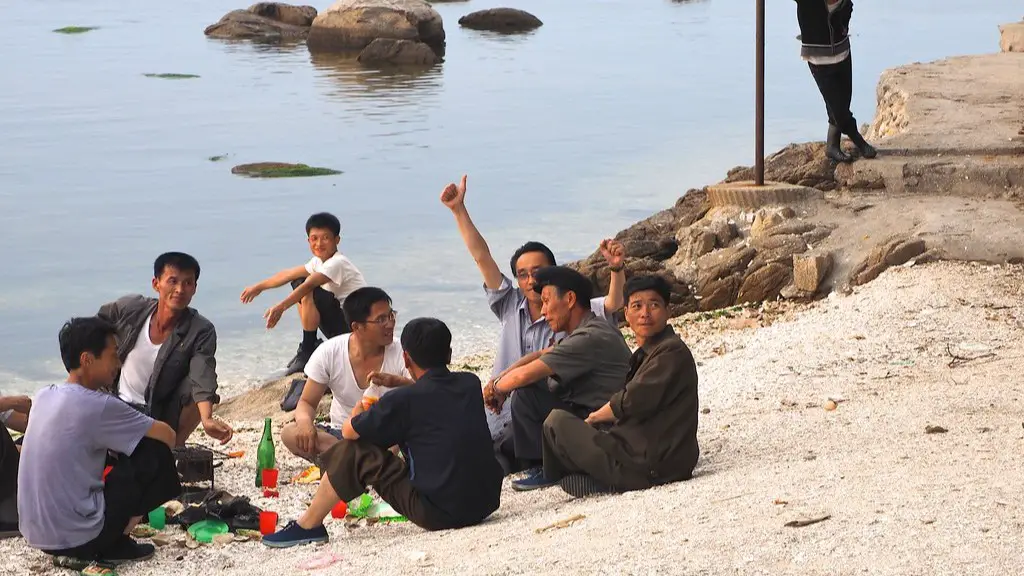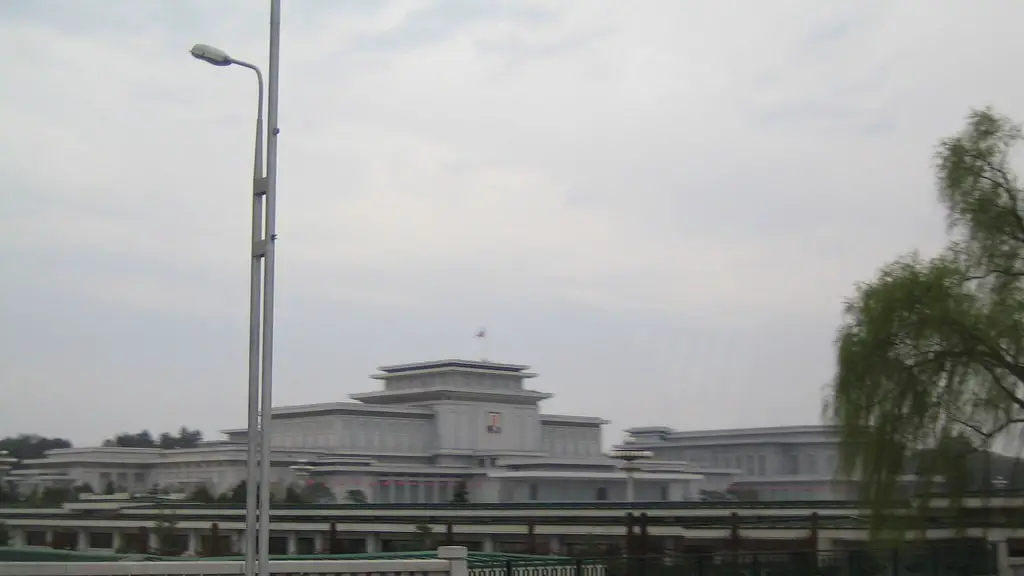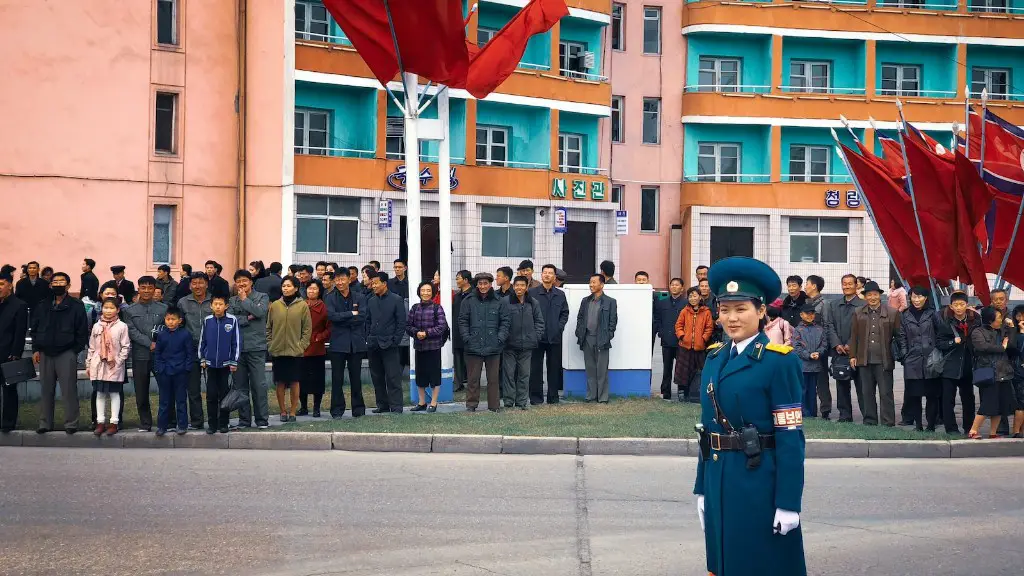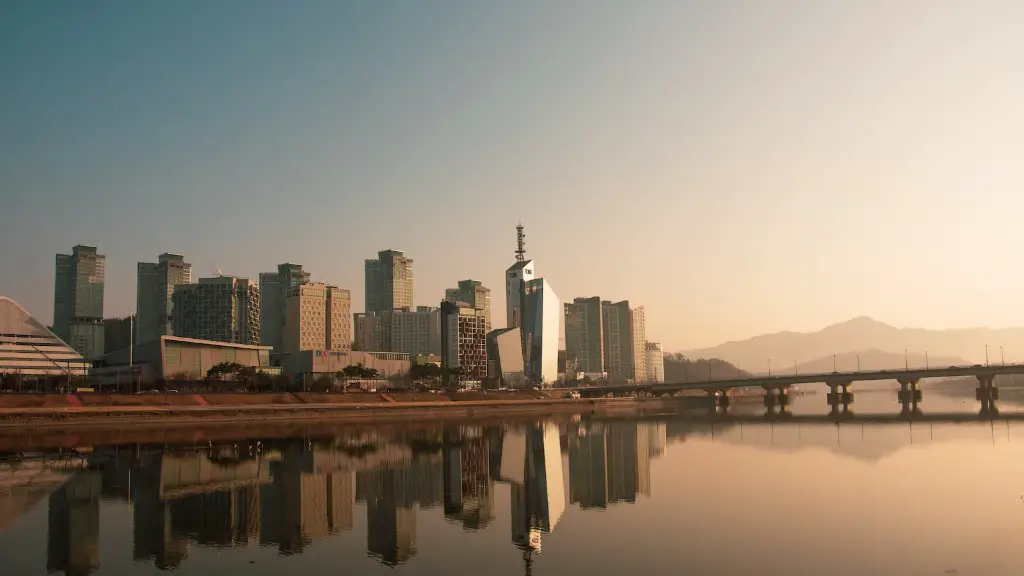The Current Situation
The Korean peninsula is still technically in a state of war, as an armistice agreement halted the Korean War. However, the South and North remain divided, with South and North Korea still technically at war. Despite the tension, there have been tentative steps toward reconciliation between the North and South.
In June 2018, North and South Korea met in the Demilitarized Zone (DMZ) to discuss their alliance status. Both sides agreed to a pact known as the “Panmunjom Declaration” which declared an end to the state of war and that the two countries would move forward in peace.
Since then, relations between the two countries have improved, with high-level dialogues being held and both sides taking symbolic steps such as temporarily reuniting families who were divided by the war.
However, some experts point out that there are still tensions between the two sides, and that a full-fledged peace treaty has yet to be signed. In addition, North Korea’s nuclear weapons program continues to be a source of international concern.
The Role Of The United Nations
The United Nations (UN) has been instrumental in facilitating dialogue between North and South Korea. The UN has facilitated dialogue through its Good Offices Mission in the Korean Peninsula and through UN Secretary-General Ban Ki-moon’s visits to North Korea and other countries.
The UN has also been involved in providing humanitarian assistance to those affected by the war, such as refugees and victims of war. In addition, it has implemented sanctions against North Korea to limit the development of its nuclear weapon capabilities.
However, some critics have argued that the UN’s efforts are not enough, and that there needs to be a greater international effort to push for a lasting peace between North and South Korea.
Political Factors
Political dynamics between the two countries can also contribute to the ongoing tension. North Korea’s longstanding “military first” policy and its stubborn refusal to engage in multi-lateral dialogues or give up its nuclear weapons has resulted in increased tensions with its southern neighbor, as well as with the United States.
Meanwhile, South Korea has its own political divisions, with some politicians advocating a more hard-line approach to North Korea while others advocating diplomacy and dialogue. This has resulted in a situation where different political factions have different opinions on how to handle the North Korea situation.
Economic Relations Between North And South Korea
One potential avenue for reducing tensions between North and South Korea lies in increased economic relations. For example, the two countries have recently begun to increase investment into each other’s economies, with South Korean firms investing in North Korean factories, and North Korean companies providing goods for South Korean businesses.
The two countries have also begun to explore joint economic development projects, such as plans to explore the potential of special economic zones and inviting foreign investors. This increased economic cooperation could pave the way for further cooperation between the two countries and potentially reduce tensions.
The Role Of The United States
The United States has a long-standing presence on the Korean Peninsula and remains an important player in the ongoing negotiations between North and South Korea. The US has taken the lead in the ongoing negotiations between North and South and has played an important role in facilitating dialogue between the two nations.
At the same time, the US has imposed economic sanctions on North Korea in an effort to pressure it to abandon its nuclear weapons program. However, some critics have argued that this approach could backfire and increase tensions between the two countries.
International Reactions
The ongoing dialogue between North and South Korea has been met with an array of reactions from the international community, with many expressing cautious optimism about the prospect of peace. Other countries, such as China, have been more actively involved in trying to promote peace between the two countries.
Meanwhile, some countries have expressed concern about the potential for military conflict between the two countries, especially if North Korea continues to develop its nuclear weapons program.
The Role Of Civil Society In Promoting Peace
Civil society organizations have also played an important role in promoting peace between North and South Korea. For example, civil society organizations have facilitated dialogue between the two countries, conducted public education campaigns, and advocated for more peaceful solutions to the ongoing tensions.
Civil society groups have also been instrumental in providing humanitarian aid to those affected by the war, such as refugees, and in advocating for increased economic cooperation between the two countries.
The Way Forward Towards Peace
Despite the ongoing tensions between North and South Korea, there is still hope for a peaceful resolution to the conflict. The two countries have already taken steps to reduce tensions, such as establishing a hotline between them, and there are still opportunities for further dialogue and cooperation.
At the same time, diplomatic solutions remain a possibility. However, before these can be pursued, the international community must first ensure that North Korea dismantles its nuclear weapons program and engages in meaningful dialogue with South Korea.
The Role Of Youth In Promoting Peace
At the same time, young people have a role to play in promoting peace between North and South Korea. Many young people are more open to international exchange and dialogue, and are more likely to engage in activities that promote peace.
In addition, youth-focused organizations, such as student clubs and youth-led initiatives, can play an important role in fostering dialogue and understanding between North and South Korea. For example, school-based projects, cultural exchanges between North and South Korea, and online discussion forums can all help to bridge the gap between the two countries and move the two sides closer to a peace agreement.
The Role Of Media In Promoting Peace
The media has an important role to play in promoting peace between North and South Korea. Media outlets can provide an opportunity for people to learn about the conflict and foster understanding between the two countries. Media outlets can also provide a platform for people to share their perspectives on the situation.
At the same time, media outlets can be used to spread negative and biased narratives, so it is important that the media follows responsible journalism standards and provides balanced and accurate coverage, rather than sensationalizing the situation.
The Role Of International Organizations
International organizations, such as the United Nations and other regional organizations, have an important role to play in promoting peace between North and South Korea. International organizations can provide a platform for dialogue between the two countries, as well as providing economic, political, and humanitarian assistance to those affected by the war.
In addition, international organizations can help to keep the two sides honest and provide a platform for negotiations. For example, the UN can monitor and enforce sanctions against North Korea if it does not comply with international agreements, such as giving up its nuclear weapons program.





